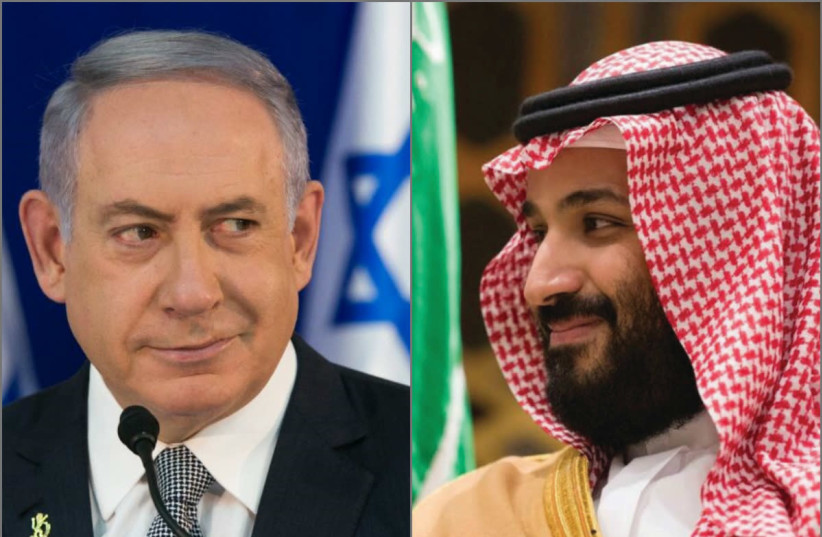Third of Saudis want business ties with Israel – poll
Ahead of a potential Israel-Saudi Arabia normalization deal, Saudi Arabian public opinion regarding ties with Israel has been unveiled in a recent survey conducted in August 2023, commissioned by The Washington Institute.
The survey involved face-to-face interviews with 1,000 Saudi citizens.
The results provide insight into the multifaceted attitudes of the Saudi population toward Israel and its implications for potential future relations.
Despite the absence of a formal agreement, a significant minority of Saudi society appears open to business ties with Israel.
Approximately one-third of respondents indicated their approval for cooperation with Israeli technology companies in areas such as climate change, cybersecurity, and water resource management. This proportion is slightly higher among Saudi adults under 30, at 33%, compared to 28% among their older counterparts.
However, the level of acceptance for such ties has experienced a slight decline, potentially influenced by the hard-right tilt of the current Israeli government. In previous surveys over the past three years, acceptance of business ties with Israel approached 40%.
In contrast to business ties, unilateral overtures toward Israel receive little popular support. Only 14% of respondents agreed to allow Israeli civilian airplanes to fly over Saudi Arabia, and just 13% would permit Israeli sports teams to participate in events in Saudi Arabia. A mere 7% would welcome Israel’s prime minister to an international conference in Saudi Arabia.

What is the most important vs. least important to the Saudi public?
The survey reveals a strong emphasis on religious factors in considering official relations with Israel. Almost half of the respondents, 46%, believe it is important to obtain new Israeli guarantees of Muslim rights at al-Aqsa Mosque and the al-Haram al-Sharif in Jerusalem.
The religious focus aligns with other responses in the survey, emphasizing the significance of faith in Saudi society.
Palestinian aspirations ranked second in importance, with 36% of respondents considering it important to obtain new steps toward political rights and better economic opportunities for Palestinians in the West Bank and Gaza. This may reflect the low regard for Palestinian political leadership among the Saudi public.
American contributions to a potential Saudi-Israeli deal ranked low on importance. Only 15% of Saudis considered it important to acquire new American weapons and security guarantees, while 16% favored a new partnership for Saudi civilian nuclear power with the US.
Widespread sentiment among Saudis that American commitments are unreliable likely contributes to these findings.
The survey also reveals a shift toward a more modern interpretation of Islam, with 48% preferring this approach over the traditional view.
However, interfaith tolerance remains low, with only a tiny minority willing to permit Christian or Jewish tourists to have prayer meetings and a similarly small group advocating for improved relations with the world’s Jews.
Iran remains unpopular among the Saudi public, with only a small minority, at 19%, attaching importance to guarantees that Iran will not start a war. However, a larger minority, at 36%, expresses a positive view of the restoration of diplomatic ties between Arabian Gulf countries and Iran, especially among the Saudi Shia community, at 47% who have a positive view.
The survey underscores the importance of considering religious dimensions in any potential trilateral US-Saudi-Israeli deal.
While Saudi Arabia’s government takes public opinion into account in decision-making, the religious factor could pose challenges for all parties involved. Recognizing and addressing these religious concerns may be crucial to securing lasting acceptance among the Saudi population.





Comments are closed.